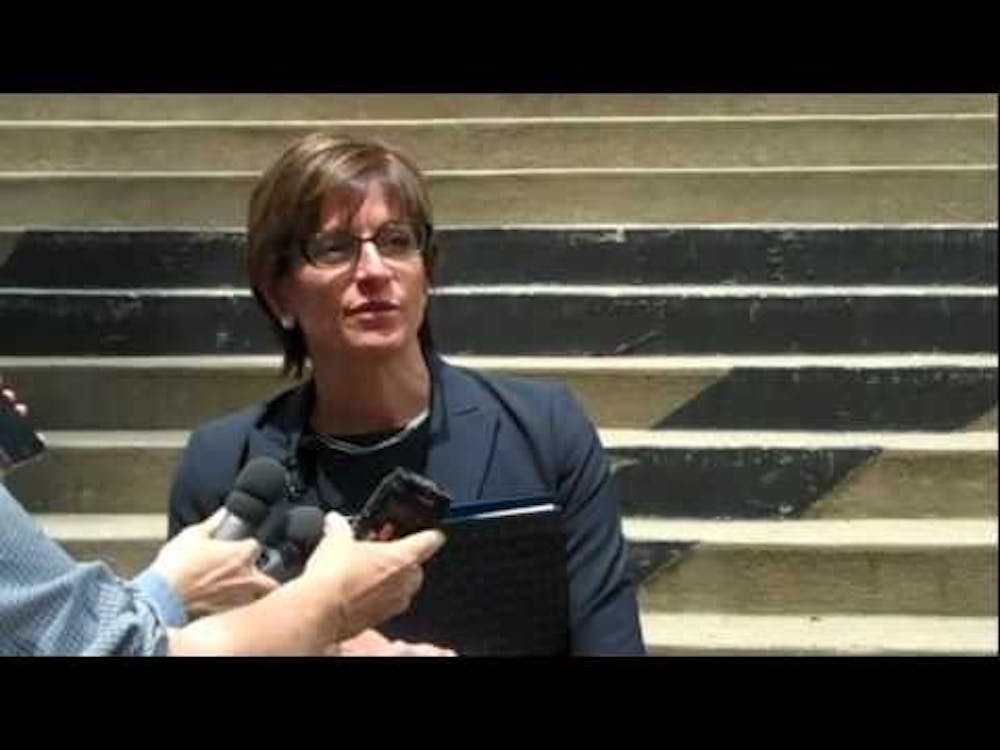Rector Helen Dragas’ history with firing presidents runs deeper than her botched ouster of President Teresa Sullivan this June.
While serving on the Old Dominion Board of Visitors in 1988, her father George Dragas helped force the resignation of President Joseph Marchello citing poor communication with the Board and a general unease with the executive’s management style, according to news reports at the time.
Marchello, an accomplished fundraiser, drew praise for his ideas but did not have a positive relationship with the state’s legislators. He was also criticized at the time for having too decisive a leadership style, and “never seemed to bother with learning the finer points of politics Virginia-style,” according to a 1988 Virginian-Pilot article. A general unwillingness to make strategic decisions was cited several times as a cause for Sullivan’s ouster.
Similar to Sullivan’s case, ODU Rector Richard F. Barry III did not convene the entire Board, instead conferring with members individually to reach a consensus on forcing out Marchello.
The dismissal of Marchello, however, did follow other formalized procedures that the University’s Board disregarded. The ODU president received written performance reviews several months ahead of his forced resignation, and met with the rector several times to discuss methods of improvement.
To replace Marchello, the ODU Board tapped University of Montana President James Koch, an economist who resigned his former post to move to Norfolk. Koch himself said the circumstances of his predecessor’s dismissal bore — at minimum — surface level similarities with Sullivan’s dismissal.
“My understanding (I was not there!) is that several key officers and members of the BOV met with Dr. Marchello and presented him with their collective judgment that he had lost the support of the BOV and must resign,” Koch said in an email Tuesday. “He agreed.”
George Dragas, after becoming ODU’s Vice Rector, led the search committee that eventually hired Koch out of three potential candidates. Koch’s appointment, and his unapologetic candidness about the circumstances surrounding his appointment, won him support from the ODU community, according to media reports.
A Virginian-Pilot features piece on the elder Dragas from June 1990 applauded his focus and devotion to ODU, but also highlighted his bottom-line approach toward seeking a president. Dragas said in that interview he would allow the president to set his own agenda before receiving any scrutiny from the Board. “I want to see what his thoughts are,” Dragas said of Koch. “The board will give him theirs. And hopefully, we’ll reach a consensus.”
But later on in the piece, Dragas issued an ominous statement. “If a president cannot do it,” he said, “we either have to work with him – or replace him.”
The Dragas family has other deep connections to ODU: In the midst of the June debacle in Charlottesville, George Dragas attended a ceremony for a new building named in his honor on the Norfolk campus, and Helen Dragas is married to the son of a former Old Dominion president.
Helen Dragas surely observed this turn of events before she joined the University’s Board – and saw her father win praise for his actions in ousting Marchello for Koch. The reception for the two rectors’ actions, however, was quite different.
Marchello, who lost popularity for his “brusque” style and for changing the school’s mascot, never inspired the uprising of popular support and outrage that Sullivan did. It was this upswell of community pushback that differentiated the attempted ouster at the University from the successful one at ODU, not the method in which they were conducted, Koch said.
Koch, who later became a consultant in higher education, added that university boards rarely call full meetings when they want to remove presidents.
“In nearly all instances, the critical events occur behind the scenes and soon thereafter are announced at a public meeting or press conference,” he said. “In the usual case, this minimizes negative publicity and avoids the potentially unpredictable and destructive dynamics of a public board meeting.”
Helen Dragas did not respond to requests for comment for this story.
News Editor Krista Pedersen gathered the information for this article in July as a research assistant for The New York Times contributor Andrew Rice







